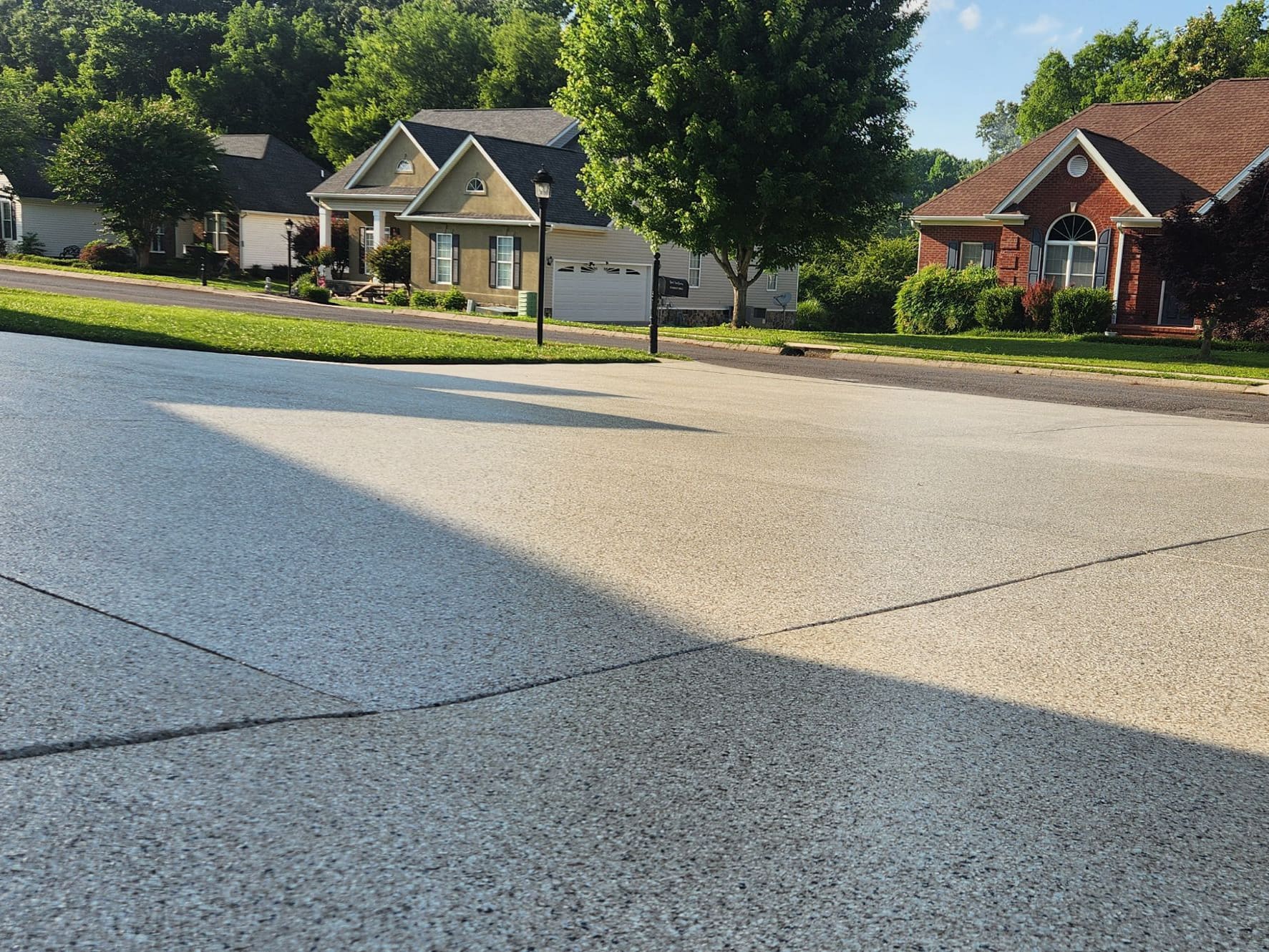Choosing the right concrete coating for your floors can seem overwhelming with all the available options such as epoxy, polyaspartic, and polyurea. These terms might sound like they belong in a high school chemistry class, but they’re actually critical when deciding the best coating for your concrete surfaces.
The world of floor coatings has continued to evolve, offering several choices for residential and commercial concrete floors.
When it comes to durability, aesthetic appeal, and long-lasting performance, polyaspartic coatings have become a top choice for those looking to improve their garage floors, pool decks, driveways, and other concrete surfaces.
In this article, we’ll compare polyaspartic coatings to traditional epoxy coatings to help you make the best decision for your flooring needs.
What Are Polyaspartic Concrete Coatings?
Polyaspartic coatings are a type of floor coating applied to existing concrete surfaces. These coatings offer superior durability and flexibility compared to traditional epoxy options. They are a subset of polyurea coatings, a group of coatings known for their high performance and long-lasting results.
Polyaspartic coatings provide a stunning glossy finish that enhances the look of your concrete while also improving its resilience.
Polyaspartic Coatings: The Four-Layered Coating
Polyaspartic coatings are typically applied using a four-layer process:
- Concrete Surface Preparation: This ensures a clean, smooth base for the coating to adhere to, creating a strong bond.
- Basecoat or Primer: The basecoat helps the top layers bond effectively to the concrete.
- Flake Color Coat (Optional): Flakes add color, texture, and slip resistance, ideal for both aesthetics and safety.
- Clear Polyaspartic Topcoat: The final topcoat offers a durable, high-gloss finish that is UV-resistant and protective.
What Are Epoxy Concrete Coatings?
Epoxy coatings are made by combining a resin and a hardener, which then bond to the concrete to form a solid, durable layer. Epoxy coatings require a multi-layer application, much like polyaspartic coatings.
However, epoxy coatings tend to be more rigid and less flexible, which can affect their long-term performance, especially in areas with high foot traffic or where impact resistance is important.
Polyaspartic Vs. Epoxy
Now that you know they are made of different compounds, it may be easier to understand why there are some fundamental and important differences between polyaspartic coatings and epoxy coatings. Let’s take a deeper look at what differentiates them.
- Adhesion and Durability: Polyaspartic coatings adhere and bond to the concrete. This is extremely important. Epoxy coatings basically sit on top of the concrete, similar to paint, as opposed to a true coating that bonds to the concrete.
Due to this, epoxy may peel or show signs of wear and tear. As polyaspartic coatings are truly bonded to the concrete, they cannot peel. Flakes will not break free, thus virtually eliminating signs of wear and tear.
- UV Resistance: Polyaspartic coatings will not fade or yellow due to sun exposure. Epoxy coatings will yellow from sun exposure. This isn’t a problem if the flooring is inside, but if it is a pool deck or driveway, then the color will not withstand the sun’s UV rays. Polyaspartic coatings maintain the same brilliance and beauty throughout their lifetime.
- Curing Time: Polyaspartic coatings are fast-curing. Do you have a big pool party planned for the weekend? Polyaspartic coatings are the way to go to refurbish your tired pool deck.
They cure 5x faster than epoxy, which can take days to harden. You can have your pool deck redone with polyaspartic coating and walk on it within a day. Now that’s convenient!
- Flexibility and Impact Resistance: Polyaspartic coatings are more flexible. The flexibility of polyaspartic coatings makes them more durable than epoxy coatings. With flexibility, coatings will not crack, chip, or peel.
Flexibility also helps with impact resistance. As the coating has flexibility, it will “give” (although you can’t see it), which helps prevent dings and chips from dropped objects.
Should I Ever Choose Epoxy Over Polyaspartic Coatings?
Polyaspartic coatings outshine traditional epoxy coatings in key areas such as adhesion, UV resistance, fast curing time, and flexibility.
These coatings are ideal for both residential and commercial applications, offering durability and long-lasting beauty that stands up to wear and tear. Whether you’re revamping your pool deck, garage floor, or commercial space, polyaspartic coatings provide the performance and aesthetic appeal you’re looking for.
If you’re located in the Chattanooga, TN area, Elite Floor Solutions can help transform your concrete floors with our high-quality polyaspartic coatings. Contact us today for a free consultation and see how our premium coatings can enhance your space with a lasting, professional finish.

